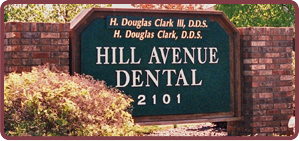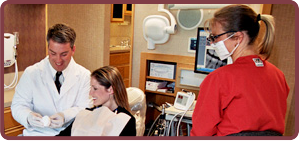
Remember those days in your childhood after school? With several hours left before your parents got home from work and you were at the house with the appetite that someone who is growing tends to have, you just couldn’t help but have a snack…or two. Snacking habits developed when you are a child can carry over into adulthood, but having a snack is not without its drawbacks. Keep reading to find out from your dentist in Superior how snacking affects your diet and oral health, how you can curb the urge to snack, and how to make healthy choices when you do have one.
How Does Snacking Affect Your Diet and Oral Health?
It seems that the impact of snacking on one’s diet may differ by person and in the type of snack consumed. For some, snacking briefly satisfies hunger and promotes feelings of fullness, but then those calories aren’t compensated for at the next meal to result in increased caloric intake. For some people, snacking has a neutral effect on hunger level and total calorie intake, but others report that it does indeed help reduce hunger.
As for the impact on oral health, that answer is a bit more straightforward. Every time you eat or drink, the bacteria in your mouth start to break down what you just consumed. The bacteria produce acids as a byproduct of this process that eats away at your enamel, which is called demineralization. If your teeth are exposed to that acid frequently enough, you develop cavities. Your body’s best defense against this is saliva, which stops demineralization and begins to strengthen your enamel. When you snack too frequently, you have a steady supply of acid in your mouth and your saliva cannot keep up.
How Can You Reduce Your Snacking Urges?
Skipping a snack is a great decision for your teeth, but how do you suppress the urge? Why are you snacking? Maybe it’s boredom or stress as opposed to hunger. The next time you are leaning toward a snack at work, take a short walk or do some stretching. See if getting your blood flowing takes away the need to snack.
If you tend to snack at home, maybe set a rule not to eat in front of the computer or TV. Sometimes people snack when their body is actually thirsty instead of hungry, so grab a glass of water and see if that cancels out your cravings. Snacking occasionally is okay but try to steer yourself away from foods you know are bad for your health.
If You’re Going to Have a Snack, What Should It Be?
First, some of the snacks that are the toughest on your tooth enamel include citrus fruits, sugary candies that are chewy, and pickles. Sodas, sports drinks, and sugary coffee beverages are also troublesome. On the other hand, snacks that aren’t bad news for your teeth include nuts like almonds and cashews, crispy fruits like apples and pears, raw vegetables such as carrots and cucumbers, or even seaweed snacks. When searching for a snack, it’s best to pick something low in calories, high in water and fiber, full of protein, and low in sugar. These items will make you feel fuller longer and won’t have a post-sugar crash.
It can require discipline, but smart snack choices benefit your diet and oral health to reduce the risk of cavities. It’s a matter of finding the healthy options that satisfy you until mealtime.
About the Author
Dr. Douglas Clark III is a Superior native, and he earned his dental doctorate from Marquette University. He has been working hard for the smiles of Hill Avenue Dental patients since 2004. Dr. Clark is a member of the American Dental Association and the Academy of General Dentistry. He can evaluate how snacking has impacted your oral health during a dental checkup which you can schedule on his website or by calling (715) 392-5161.









